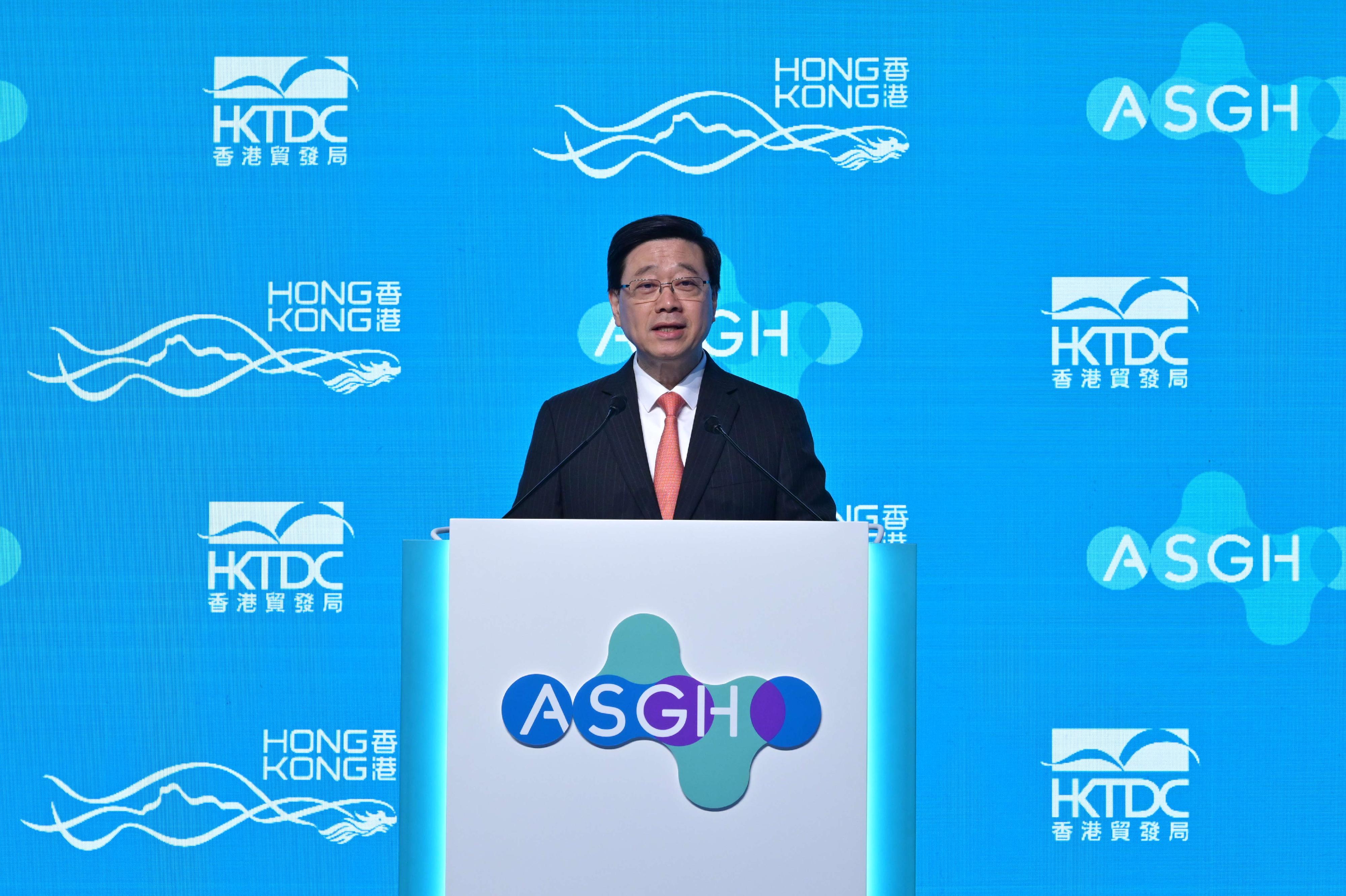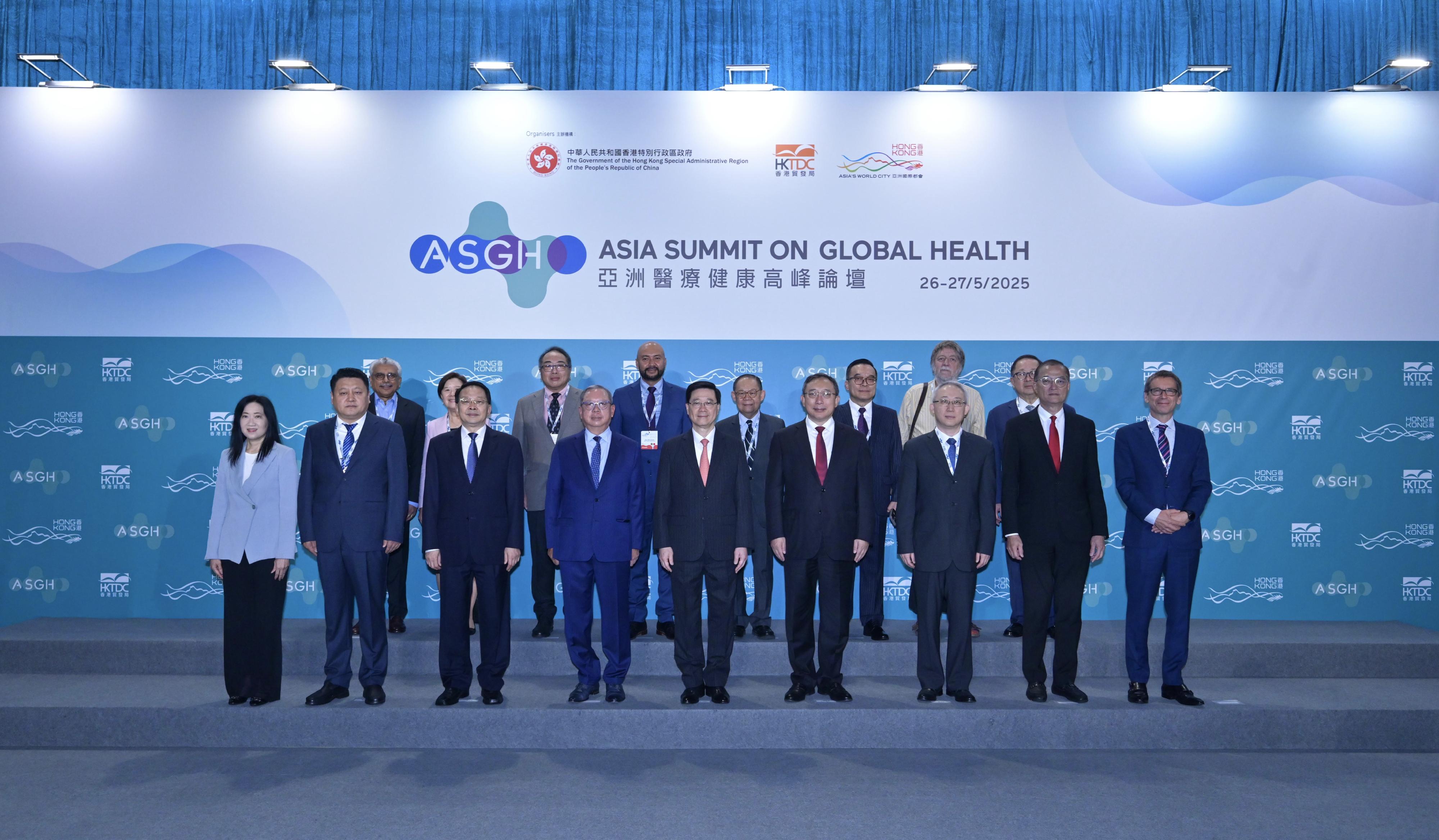
Hong Kong Special Administrative Region Chief Executive John Lee Ka-chiu called for stronger international collaboration to address pressing health challenges on Monday, warning against the dangers of isolationism and protectionism amid rising global trade tensions.
Speaking at the opening of the Asia Summit on Global Health (ASGH), Lee stressed that while isolation may help contain a virus, it is counterproductive in solving broader global issues such as healthcare accessibility and trade.
“Much as how a human body can only stay healthy when its interconnected systems work in harmony, our global economy can only prosper with an ecosystem of trust, collaboration and multilateralism,” he told an audience of international delegates.
The two-day summit, now in its fifth edition, gathered more than 80 global healthcare leaders, including government officials, researchers, investors, and industry pioneers.
Under the theme “Fostering Global Collaboration for a Shared Future”, the event focuses on advancing cooperation in medical technology, elderly health, and healthcare system innovation.
Lee highlighted Hong Kong’s strategic role as a leading health innovation hub, leveraging its unique advantages under the “one country, two systems” framework. These include deep connectivity with the Chinese mainland and global markets, robust intellectual property protections, and a thriving research ecosystem.
He pointed to the city’s world-class medical schools, state key laboratories, and a growing cluster of research centers specializing in health technology and artificial intelligence.
Additionally, Lee emphasized the importance of Guangdong-Hong Kong-Macao Greater Bay Area collaboration, particularly through initiatives like the Hetao Shenzhen-Hong Kong Science and Technology Innovation Co-operation Zone.
ALSO READ: Hetao ‘One zone, two parks’ on track to become international tech hub
He said the city is working with its neighbor Shenzhen to establish a Real-World Study and Application Center to promote cooperation on the sharing of health and medical data, which would speed up the approval and registration of new drugs in both places.

The ASGH is part of the Hong Kong International Healthcare Week, organized by the Hong Kong Trade Development Council (HKTDC).
Running alongside the summit is the 16th Hong Kong International Medical and Healthcare Fair, a three-day exhibition showcasing the latest advances in medical technology and services.
HKTDC Chairman Peter Lam Kin-ngok underscored the urgent need for global partnerships to tackle healthcare challenges — from pandemic preparedness to aging populations — and hailed the ASGH as a key platform for driving medical innovation and investment.
Cao Xuetao, deputy director of the National Health Commission, invited overseas health companies to invest in China as the country further opens its healthcare sector to foreign participation.
“I encourage international firms to seize this opportunity, accelerate localization, and produce high-end medical products in China for mutual success,” he said.
Cao reiterated China’s commitment to upgrading its healthcare industry, particularly in cutting-edge fields like vaccine development, while strengthening global cooperation.
In a prerecorded address, World Health Organization Director-General Tedros Adhanom Ghebreyesus praised the summit’s focus on collaboration, noting its timeliness amid global health challenges.
He pointed to the recent landmark adoption of the Pandemic Agreement by the World Health Assembly in Geneva — a milestone achieved after over three years of negotiations — as proof that multilateralism remains vital in a divided world.
READ MORE: World Health Assembly adopts global pandemic agreement
“By working together, we can build a healthier, safer, and fairer world,” Tedros said.


